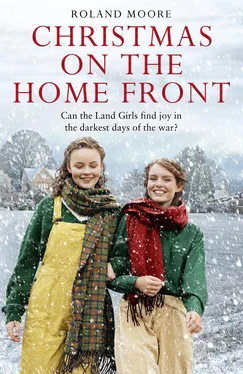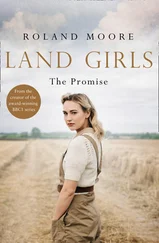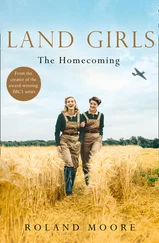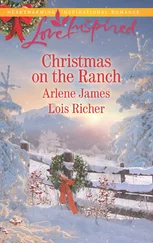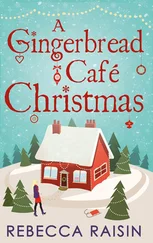Dig for Victory? Yes, of course.
Don’t waste water? Naturally.
Loose lips sink ships. Not Joyce. You could count on her discretion.
Joyce never questioned what she was doing, never questioned her orders like her friend Nancy Morrell had. Joyce needed the order and rigidity of service to hold onto like a lifeline. It made sense of everything that had happened in her life, everything that they were going through individually and as a nation. She’d lost her mother and sister in the bombing of Coventry and the war effort gave her a purpose; a chance to bring something positive out of those events.
She was in her bedroom at Pasture Farm where she had been billeted since she had joined the Women’s Land Army. She paced the familiar small room with its mismatched carpet and curtains and faint smell of mould; a room in which she had observed every detail during long evenings after work. The peeling skirting board, the thinning threads on the main drag of the carpet, the patch of damp in the corner above the window (a constant reminder that Farmer Finch, the landlord of the house, had failed to keep his promise to fix the guttering) and the creaky floorboard by the door. In the drawer was an article from the Daily Mail about the train crash that had happened a few months ago. Joyce kept it because although it naturally focussed on her friend Connie’s heroism, there was also a quote in there from her. It was a small claim to fame; some recognition of the part she’d played. She’d imagined showing her kids one day, if she had any.
Sometimes the room was full of laughter as the girls got ready for nights out; doing each other’s hair, trying on each other’s frocks, borrowing each other’s makeup. But it had been an unhappy room too, the sadness hanging in the air during the long days when John had gone temporarily missing in occupied France and she had been waiting for news. But all those times seemed so long ago now. Joyce heard herself give a small dismissive snort for those days that had gone. What did they matter now?
She glanced down at the neatly-made bed. On the floral-patterned eiderdown were two items: a small parcel with her name and address on the front, and Esther’s breadknife.
Ignoring the parcel, Joyce reached towards the knife and picked it up, feeling its familiar weight in her palm. Esther had always warned the girls that the knife was sharper than a breadknife had a right to be, and Connie Carter had ignored that warning and cut her finger with it on at least three occasions. Esther had berated Finch for sharpening it up. But today, Joyce was glad of it.
Joyce could hear her own heavy breathing and was aware she was taking too much air into her lungs. Her vision started to swim with floating stars.
Could she really do this?
Then Joyce glanced at the parcel with its unfamiliar handwriting. Who had sent her this? It wasn’t from anyone she knew. What did it matter now? Parcels didn’t matter. Nothing mattered now. She already knew what she had to do.
Why was she hesitating?
Come on, they were waiting. They might be dead already if she didn’t go now. Come on!
Joyce knew the terrible truth. Gripping the knife she had smuggled upstairs and hidden under her pillow, she knew she didn’t have the strength. She’d been through so much these last few days. She wanted to curl up under that eiderdown and let sleep wash over her.
But she had to act, didn’t she? Of course, she did.
Time was running out.
She knew that everything was about to change.
And yet, she couldn’t find the energy, the sheer motivation to continue.
Decisions.
She couldn’t hear any voices downstairs. Where were they? What were they doing?
Her left hand tensed, feeling the handle of the breadknife, unyielding and warm with her perspiration.
She thought about Finch, Esther, Connie and all that had happened. A world ripped apart, the war finally landing on the bucolic doorstep of Pasture Farm. Nothing would ever be the same again. She yearned for the time before, the time, years before when the war was only starting, and it hadn’t blighted her life. A time when making different decisions may have led her somewhere, anywhere, other than this bedroom at the farm, on this day. Every crossroad had led her here, and every day had brought her nearer to this inevitable and dreadful decision.
Had she taken the wrong turning?
Joyce found it impossible to carry on.
She dropped the knife to the floor. It clattered on the bare boards near the door. She didn’t care if they’d heard it. She couldn’t go on. She couldn’t be a part of what was about to happen. Her resilience had finally gone beyond threadbare to empty. She had nothing left, and no way of finding the strength to carry on.
She’d stopped at the crossroads.
But then something made her look back towards the bed, towards the package. Joyce picked up the parcel and tore it open.
When she saw the contents, nestled in the ripped brown paper, Joyce stopped in her tracks. How could this be? It must be a hallucination. It made no sense. Her fatigued mind fumbled to make sense of this impossible package. The contents changed everything; snapping her out of her stupor; providing new impetus and purpose.
Some days change your life forever. And Joyce Fisher knew that today would be one of those days.
With new determination, she picked up the knife.
Chapter 1 Table of Contents Cover Title Page Christmas on the Home Front ROLAND MOORE Copyright One More Chapter a division of HarperCollins Publishers Ltd 1 London Bridge Street London SE1 9GF www.harpercollins.co.uk First published in Great Britain by HarperCollins Publishers Ltd 2019 Copyright © Roland Moore 2019 Cover design by HarperCollins Publishers Ltd 2019 Cover images © Shutterstock.com Roland Moore asserts the moral right to be identified as the author of this work. A catalogue copy of this book is available from the British Library. This novel is entirely a work of fiction. The names, characters and incidents portrayed in it are the work of the author’s imagination. Any resemblance to actual persons, living or dead, events or localities is entirely coincidental. All rights reserved under International and Pan-American Copyright Conventions. By payment of the required fees, you have been granted the non-exclusive, non-transferable right to access and read the text of this e-book on screen. No part of this text may be reproduced, transmitted, down-loaded, decompiled, reverse engineered, or stored in or introduced into any information storage and retrieval system, in any form or by any means, whether electronic or mechanical, now known or hereinafter invented, without the express written permission of HarperCollins. Source ISBN: 9780008204457 Ebook Edition © November 2019 ISBN: 9780008204426 Version: 2019-09-12 Dedication To Annie, a grandmother who loved books and who taught me the power of stories. Prologue Chapter 1 Chapter 2 Chapter 3 Chapter 4 Chapter 5 Chapter 6 Chapter 7 Chapter 8 Chapter 9 Chapter 10 Chapter 11 Chapter 12 Chapter 13 Chapter 14 Chapter 15 Chapter 16 Chapter 17 Chapter 18 Epilogue Acknowledgements About the Author About the Publisher
It was eight days before Christmas.
The smell of burning coal and hot oil assailed Joyce Fisher’s nostrils as she moved from the ticket office to the platform of Helmstead station. She brought a handkerchief from her pocket to cover her nose, to breathe through it and protect herself until she got used to it. A large steam engine was waiting, its carriages filling with an impossible number of passengers and their luggage; the hubbub of excited conversation of people going away. Joyce was wearing a long-skirted yellow dress with a delicate flower print, and had a cardigan pulled around her shoulders. She was regretting her decision not to bring a coat since the warm December morning had suddenly turned to a typically wintery December afternoon, even though the sun was high in the clear light-blue sky. She scanned the platform, looking at the sea of faces, for her beloved husband, John. The station was unusually busy, but not unexpectedly so. These lucky people were on leave for Christmas and they were heading off to visit family and friends. Churchill would cite the importance of the celebrations in his speeches, knowing how important they were for morale. A few days with loved ones while you tried to forget about the sacrifices and unpleasantness of war could do wonders and people would return to their duties with renewed vigour. For some of them they would have to be back to work before Christmas – so their families would move the celebration to suit. For a war that had been going on for so long, any such respite was important. Joyce hoped that she would be able to spend this Christmas – Christmas, 1944 – with John, but she knew he had to go to his brother, Teddy, in Leeds who had fallen from scaffolding the week before. Teddy wasn’t married so in his encumbered state he was relying on the generosity of neighbours to provide him with meals and do his washing. He’d apparently slept on his sofa downstairs since the fall, and clearly he couldn’t rely on his neighbours’ kindness forever, so John had agreed to go to him for a few days until he was, literally, back on his feet. Joyce hoped that Teddy’s ankle would heal quickly.
Читать дальше
